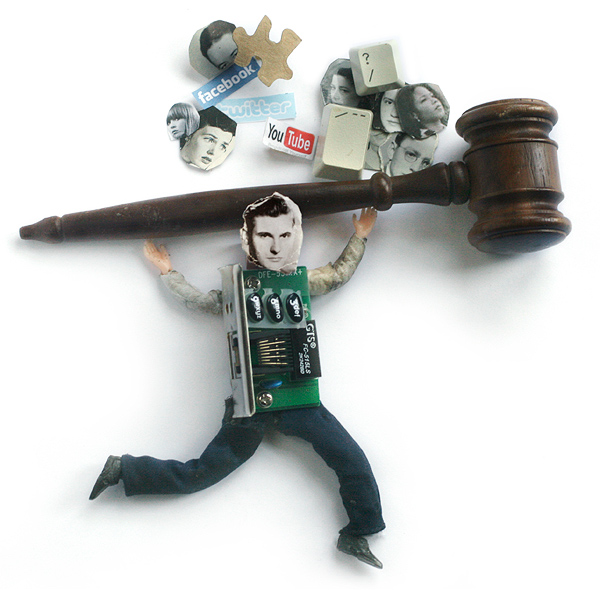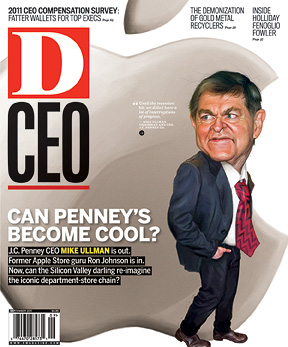Social media is the fastest-growing online activity in the country. It has risen a dramatic 230 percent since 2007, and roughly 66 percent of Americans report using social networking sites like Facebook or Twitter. They spent 49.3 billion minutes on Facebook in December 2010 alone. As of July 2011, the site had more than 750 million users worldwide. (If Facebook were a country, it would be the third most populous on earth.) Lured by the immediacy and simplicity of sending “tweets” of up to 140 characters directly from their smartphones, Twitter’s 190 million users have propelled that site from processing 5,000 tweets a day in 2007 to a staggering 65 million a day by 2010. Even the more professional, business-oriented LinkedIn has more than 100 million members, and is adding new ones at a rate of about 1 million per week.
The burgeoning audiences and marketing opportunities of social media haven’t escaped the attention of corporate America. Coca-Cola has more 32 million Facebook fans, Starbucks has more than 24 million. And it’s not merely a numbers game; social media offers companies a greater ability to engage with their customers, foster goodwill, listen to feedback, prevent misinformation, and even manage crises. Irving’s Research in Motion, makers of the BlackBerry, generated thousands of “likes” and approving comments on its Facebook page with a simple Veterans Day message. A 2010 University of Massachusetts study of social networking among Fortune 500 companies revealed that although only about 20 percent of the Fortune 100 are actively using all four of the main social media avenues—Facebook, Twitter, YouTube, and blogging—the numbers are growing.
As vital to business as a social media presence is, however, it’s not without its legal perils. Companies face a whole host of online risks, from their trademarks and other intellectual property being infringed online to having their good names disparaged by cyber attackers. In June, life insurance firm Coventry First, a leader in the secondary life insurance market, where investors pay individuals for the right to collect on their policies, filed a suit in Philadelphia federal court against a so-called “Twittersquatter.” Someone writing under the Twitter handle “@coventryfirst” allegedly used the company’s name and trademarks in making sarcastic posts cheering mass disasters and plane crashes. (The case has since been dismissed.) And last year, at the height of the Gulf oil spill, a Twitter account called “@BPGlobalPR” attracted international attention with insensitive tweets like “we’ve eliminated the huge turtle surplus in the gulf.”
One of Dallas’ largest intellectual property boutique law firms, Klemchuk Kubasta LLP, is so convinced that companies need help navigating this digital minefield that it’s started a social media practice group. Founding partner Darin Klemchuk says the timing couldn’t be better.
“The law can’t keep pace with the rapid changes in technology,” he said. “We saw that the law is evolving to meet the challenges of social media. It’s all the same problems we’ve had for decades, just played out in a bigger arena with much faster technology.”

His firm does more than advise clients and monitor third-party use of their trademarks. Although it doesn’t shy away from sending cease-and-desist letters and even filing suit when necessary, it finds it’s just as effective when working behind the scenes. When online infringement is discovered, Klemchuk says, a first step is usually to have the client get in touch with the wrongdoer, “before hostilities escalate and everyone lawyers up.” The attorney also deals with social media sites themselves, because “all of them have takedown procedures or a process in place.”
But when the Facebooks and Twitters of the world aren’t as quick to respond as clients would like, Klemchuk makes an end-run around them and deals directly with their outside counsel. “If you can get a lawyer on the line, it speeds up the process considerably,” he says. Companies like eBay, for example, tend to be “very rights-owner friendly,” according to Klemchuk.
The firm has already won a number of loyal clients, including Jim Buchanan, president of Buchanan Technologies, a Grapevine-based IT services provider for companies worldwide in the $500 million to $1 billion range—including the technology groups for Cowboys Stadium and Austin’s new Formula One racetrack. David Hicks, president of Dallas-based franchisor HomeVestors, which has nearly 200 franchises in 33 states, turned to Klemchuk for help policing the company’s family of trademarks—including its well-known “We Buy Ugly Houses.” Hicks says, “It’s so easy now for individuals to go on Craigslist, Facebook, etc. and try to poach a trademark. We’ve spent millions on advertising each year, and someone can create the appearance of being HomeVestors when they’re not.” According to Hicks, Klemchuk has helped his company take back URLs from such domain name squatters, and has even shut down would-be infringers with court injunctions.
The explosive growth and pervasiveness of social media have made it irresistible for the business community, but the constantly shifting digital landscape is also dotted with legal risks and pitfalls. Firms like Klemchuk Kubasta may be among the first to launch a practice group devoted to social media, but others are sure to follow.
John Browning is a partner at the law firm of Lewis, Brisbois, Bisgaard & Smith in Dallas, an award-winning journalist, and the author of The Lawyer’s Guide to Social Networking.






